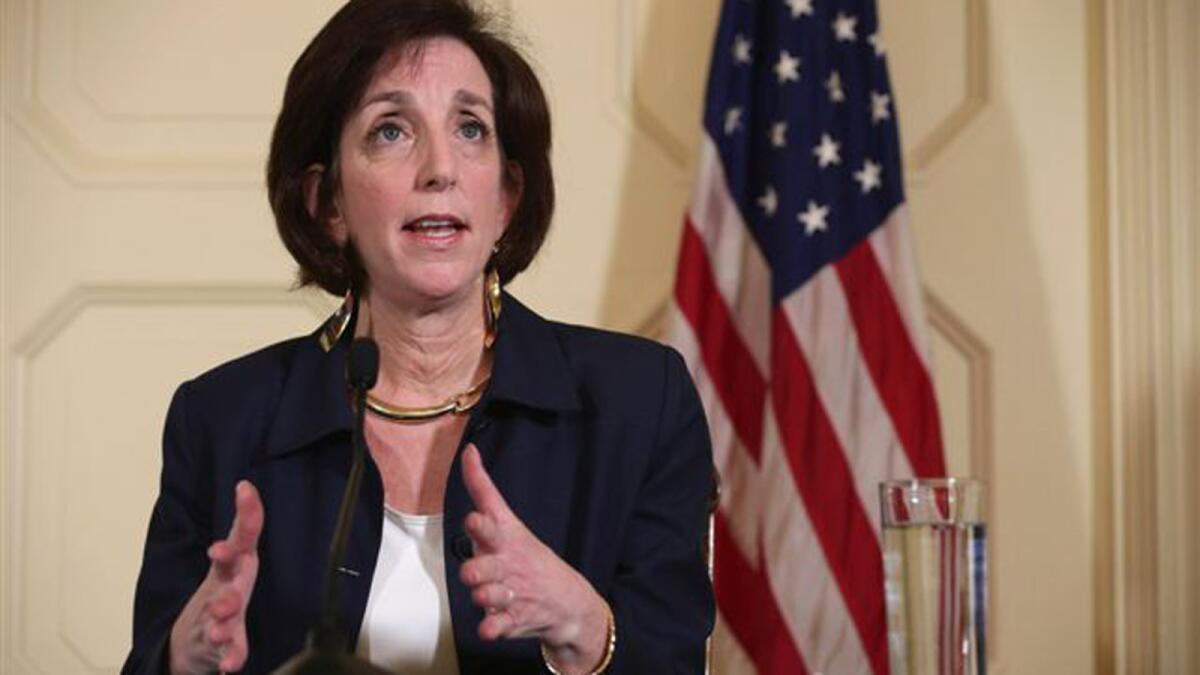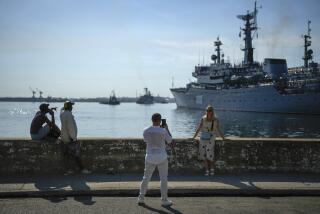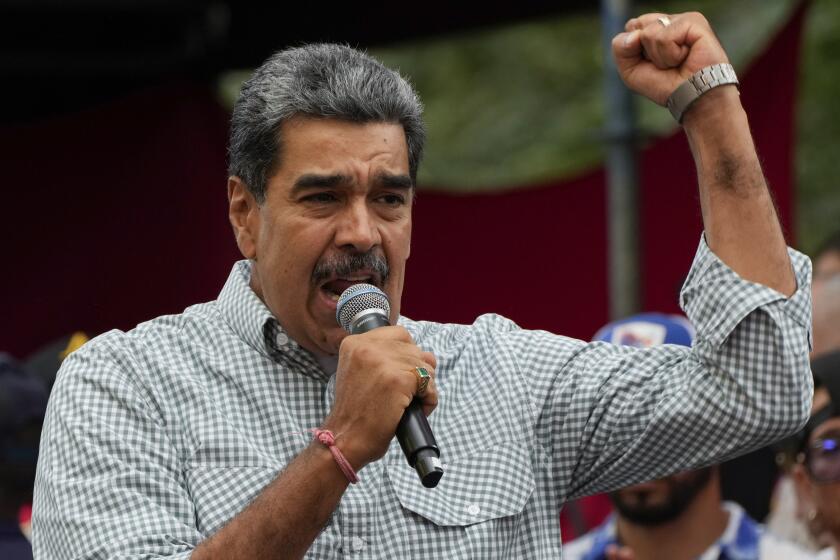Veteran female diplomats leading U.S.-Cuba negotiations

As Cuba and the United States prepare for their next landmark meeting in Washington, the future of their relations, at least in the short term and at the critical nuts-and-bolts level, rests in the hands of two veteran female diplomats.
They are not afraid to spar but have also earned each other’s respect through years of on-again, off-again dealings and ebbing and flowing tensions.
American Roberta Jacobson and Cuban Josefina Vidal are heading their countries’ delegations to reestablish diplomatic ties after more than half a century, overseeing January’s opening salvo and heading into the next session. No date has been set, but the U.S. State Department announced it would be in the U.S. capital.
Already, the two have clashed over human rights and the issue of fugitives each country is said to be harboring. Yet, by many accounts, the more public disagreements masked a private, cordial and substantive relationship that has led the two countries to the beginnings of a thaw.
Outstanding issues such as human rights “reflect profound differences between our two countries and will continue to be discussed,” Jacobson said at the end of three days of talks on Jan. 23. Vidal used almost the exact same language.
For more than a decade, Vidal, now in her early 50s, has been Cuba’s point woman on all things U.S., often recognized as one of her nation’s top “Americanologists” and its frequent emissary to the neighbor to the north.
She is the face most often presented to visiting U.S. congressional delegations, business and academic groups and American journalists. Fluent in English, she first came to international attention in 2000, when she came to Miami to escort 6-year-old Elian Gonzalez back to Cuba. The child had been at the center of an international custody battle between his father in Cuba and relatives in the United States.
Articulate, poised and steely, Vidal served in the Cuban Interests Section in Washington beginning in 1999. Such offices serve as proxy embassies when two countries lack diplomatic relations. She left in May 2003 when her husband, Jose Anselmo Lopez Perera, a first secretary at the interests section, was one of 14 Cuban diplomats declared persona non grata and expelled for espionage.
Returning to Cuba, she joined the Foreign Ministry and has been on a steady rise since, now heading the ministry’s all-important U.S. division. As evidence of the high regard top leadership has for her, Vidal is also a member of the powerful 100-member Communist Party Central Committee.
“With Josefina, what you see is what you get: substance,” said Julia E. Sweig, an American expert on Cuba who has written extensively on the subject and has known Vidal for years. “She has a great deal of authority … and the full force of her president behind her.”
Vidal told an American audience in fall 2013 that the U.S. was ignoring dramatic change in Cuba at its peril.
“The U.S. is wasting opportunities to participate in the transformations taking place in Cuba that will provide interesting opportunities for American companies in areas like oil, telecommunications and infrastructure,” she said during a speech at Columbia University’s School of International and Public Affairs in New York, one of numerous such appearances she has made in the U.S.
Jacobson, 52, has followed a more conventional career path and today is one of the most senior women in the State Department.
In January, as assistant secretary of State for Western Hemisphere Affairs, she was the highest ranking U.S. official to attend formal talks in Cuba in more than 30 years. (She had previously visited Havana as a lower-level official.)
With a specialization in Latin American issues, she speaks fluent Spanish honed during a tour of diplomatic duty in Peru and studies in Argentina, aides said.
Most of her diplomatic career was based in Washington, where she climbed the bureaucratic ladder. She is often praised for being detail oriented and well versed in the issues on the negotiating table.
All during that heady week in Havana in January, Jacobson and Vidal were pretty much running the show. (There was no Raul Castro in sight.)
Both gave news conferences that were broadcast live in Havana — an extreme rarity in a country where official commentary is usually reserved for the front page of Granma, the Communist Party newspaper, or to be read by stoic announcers on midday news transmissions of state TV.
At Jacobson’s closing news conference, in the elegant residence of Jeffrey DeLaurentis, the head of the U.S. Interests Section, reporters from Granma and the pro-government Cubadebate website jostled for position with reporters from National Public Radio and USA Today.
Just that morning, Jacobson had eaten breakfast with Cuban dissidents hated by the government in Havana. Vidal later criticized the meeting, but no one moved to stop it.
Jacobson followed with a visit to the home office of Cuba’s most famous dissident blogger, Yoani Sanchez, who is derided by communist officials as a lackey of Washington. The visit irked the government, with Vidal saying that if U.S. diplomats want free rein in Cuba — part of the list of demands — they will have to stop hobnobbing with dissidents. But none of this appears to be a deal breaker.
Since the meetings concluded, Fidel and Raul Castro have pronounced positions. In a letter to a university group, Fidel Castro, the retired and ailing revolutionary commander who has not been seen in public for months, made his first comment about the historic reopening of ties with the U.S., saying he approved generally of the process but did not trust the United States.
His brother, Cuban President Raul Castro, in a fairly hard-line speech peppered with old-style leftist geopolitics, reverted to the argument that relations will not be “normal” until the U.S.-imposed embargo on Cuba is lifted, the U.S. naval base at Guantanamo Bay is closed and the land returned to Cuba, and other outstanding disputes are resolved. Cuba should not be expected to make concessions in exchange, he said.
“It’s fair to say there’s a lack of trust, but we’re working to build that trust,” State Department spokeswoman Jen Psaki said.
But some of that rhetoric may be little more than a trompe l’oeil to allow Vidal and Jacobson to work at their pace.
The two women dined together on one of their last nights in Havana, at DeLaurentis’ mansion. As rare as it was for Vidal, a high-ranking Cuban official, to be in such a place, it was not so unusual for her to be eating with Jacobson.
“This is what we normally do,” Vidal said. “Dinners or lunches.”
“This is a time we use not only to talk about our work,” she told MSNBC, “but also to have a normal, civilized conversation between normal people.”
More to Read
Sign up for Essential California
The most important California stories and recommendations in your inbox every morning.
You may occasionally receive promotional content from the Los Angeles Times.











